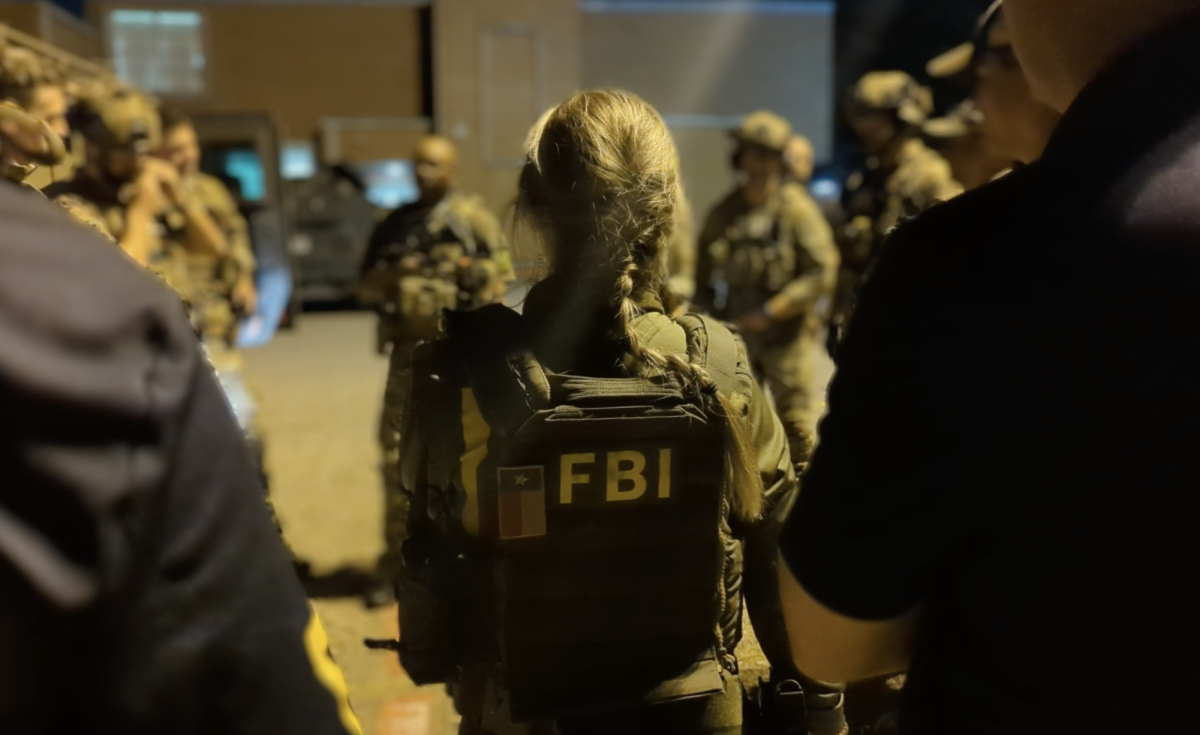Ever since the Eye for an Eye Death Penalty Symposium, capital punishment has been a hot topic among students at Texas A&M. The symposium, which was sponsored by the European Union Center and the Aggie International Ambassadors, raised questions surrounding the moral and political issues of capital punishment, the trend of capital punishment in the United States and the possibility of the death penalty as a deterrent to crime and extradition.
The symposium has sparked debate about capital punishment among students with differing opinions and backgrounds. Many possess extremely strong beliefs and share them rather vocally with those who are willing to listen.
Blake Lacy, a junior agricultural development major places himself in the victim’s shoes. Lacy believes it is important to remember what has happened to the people who have been victimized when considering capital punishment.
“I could stand here all day and say that killing is wrong and should not be implemented in our justice system,” Lacy said, “but I know in the bottom of my heart if it were my father killed or my sister raped, there is nothing less than the death penalty I would accept.”
Lacy said he does not believe that the death penalty is a deterrent to crime. He said he realizes that every major civilization with the death penalty still has murders, just as there are murders in the United States today. To Lacy, murders would occur with or without the death penalty, but with the death penalty, the families of the victims can feel a sense of closure.
“If I woke in the night to find a burglar in my home there to harm my family, I would kill without hesitation,” Lacy said. “Why should my reaction be different in the event I could not defend the ones I loved?”
Other students argue that the convicts need to be given the time to feel remorseful for their crimes. Sophomore international studies major Nicole Bacchus believes that criminals need to ask for forgiveness and have trouble doing so before they are truly ready.
“When there is so much media attention on a case, that is the time when the accused are least likely to repent,” Bacchus said. “Capital punishment is not our purpose, and it should not be our plan.”
Bacchus said she was raised to believe in capital punishment, but her views changed after the James Byrd Jr. trial of Jasper, Texas. Byrd waskidnapped by three men, beaten and dragged three and a half miles down a country road to his death. The three men, John William King, Lawrence Brewer and Shawn Berry, were sentenced to death for Byrd’s murder.
Bacchus believes that these convicts will have a hard time repenting for their crimes because of the amount of attention given to the case. She believes they needed to have time to ask for forgiveness before they were sentenced to death.
“It really shocked me when John William King’s father got on the stand and asked the jury not to sentence his son to death because he hadn’t repented,” Bacchus said. “I had never thought of it that way before. Now, I feel like by taking matters into our own hands, we are taking time away from that person that they would have had to make amends with their creator.”
Some students base their viewpoints on the law, but even their opinions differ. Sophomore international studies major Laura Cearfoss believes that order is a large part of the death penalty. Without the death penalty she believes that there would be no justice for the victims.
“I think it’s necessary to keep order. You have to have justice,” Cearfoss said.
Other students have an international perspective. Many countries have extremely different policies toward capital punishment. In order to join the European Union, countries must abolish the death penalty.
Senior psychology major Edit Csuha moved to the United States in 1989 from Hungary. She said she understands the positions of other countries, including Hungary’s, that have chosen to abolish the death penalty, and believes they are justified because of the historical abuse of capital punishment by their leaders.
“I believe that life without parole is the best option,” Csuha said. “Since we don’t have that in Texas right now, I feel that it is unethical to let murderers back into society, and so the best option is to just kill them.”
Senior mechanical engineering major and Aggie International Ambassadors president Shankar Annamalai disagrees. Annamalai gave the opening remarks at the Eye for an Eye Death Penalty Symposium and said the death penalty is similar to the crimes the convicts commit.
“A system that punishes people has to be above the crime that was committed,” Annamalai said.
The main point of the symposium, however, was to clear up misconceptions of different cultures, he said.
“I think everybody walked away understanding something new,” Annamalai said.
Not a dead discussion
February 15, 2004

0
Donate to The Battalion
$70
$2500
Contributed
Our Goal
Your donation will support the student journalists of Texas A&M University - College Station. Your contribution will allow us to purchase equipment and cover our annual website hosting costs, in addition to paying freelance staffers for their work, travel costs for coverage and more!
More to Discover









